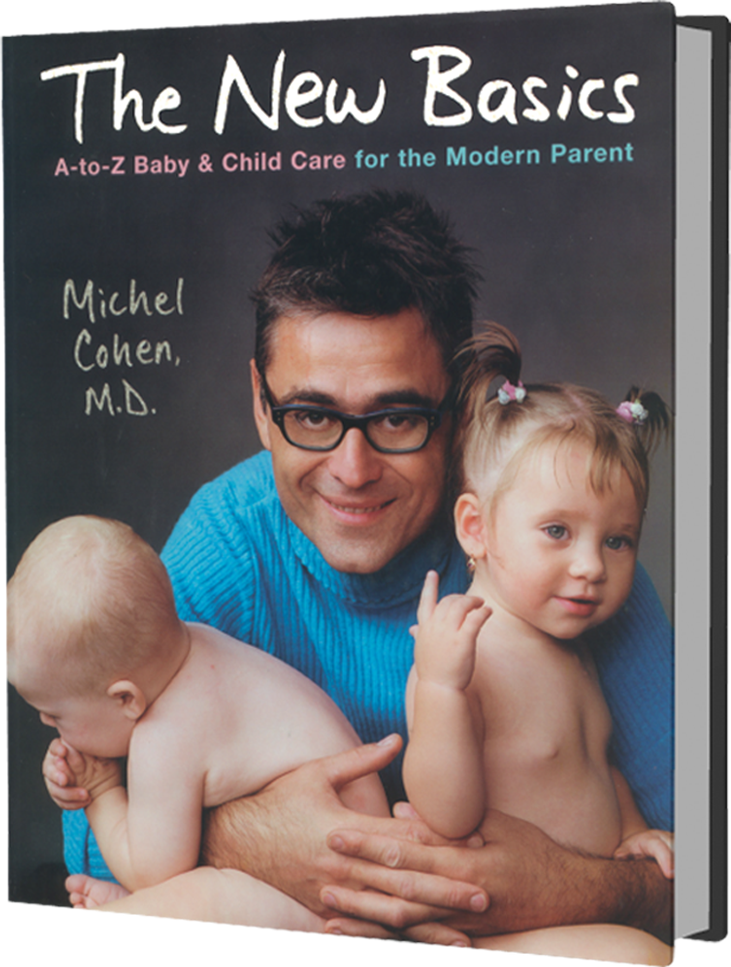
Breast Feeding (Part 3)
Feeding the First Month
By now you’ve gotten the hang of it. You can nurse while you’re walking or on the phone. The pain has decreased, and everything is going well.
Continue doing what you’re doing.
Don’t bother. One advantage of nursing is that it doesn’t require much thought. If you pay no attention to timing, Lucy will settle into a routine of two- to three-hour intervals, not because you’ve imposed it on her but because it’s natural. You needn’t obsess about regularity, but you should already be thinking about establishing a low-intervention regimen at night, wherein you’ll feed only when your little diner is really insistent. This will be your first step toward raising a night sleeper, and it will help you avoid the later struggle of “sleep training.”
When will the nursing taper off?
After a few months, Lucy will hold off a little longer between feedings, and the feedings themselves will take less time. But there probably won’t be a major change in habits until she’s ingesting significant amounts of solid food, around eight months.
Can I pump now?
You can pump, but be clear on your motivation. Some mothers stockpile an entire freezer-full of breast milk “just in case.” Instead, pump only what you’re going to need. If you want to skip a few hours a day, that means one or two feedings’ worth of breast milk. Also, consider the possibility of supplementing with occasional formula, which is not poison and won’t interfere with nursing once Lucy has adjusted to breast feeding.
If you choose to skip nursing several times a day, pumping milk makes sense. But if you plan to do so only occasionally, a few ounces of formula here and there won’t make a big difference [See: Pumping].
Should I introduce a bottle to prepare the baby for a future time when she won’t be able to nurse around the clock?
There is no advantage to keeping Lucy interested in the bottle if you don’t need or plan to use one [See: Bottle Refusal].
When can I use a mix of breast milk and formula?
As soon as you have successfully mastered the technique of breast feeding. But if you rely too heavily on formula, you may decrease your production and dry up.
What if it still hurts?
That means you are in the rare category of mothers who experience pain beyond a few weeks. If you have no fever and no swelling, you don’t have a breast infection. For the most part, persistent breast pain is a matter of individual predisposition. In other words, your nipples are simply oversensitive. Eventually, the pain will get better, but it may take a couple of months [See:Breast-Feeding Problems].
Up to Six Months
By now you probably qualify as a pro. And so does Lucy; she gulps down her meal in minutes while distracted by all the excitement around her. This may raise doubts in your mind as to whether you’re producing enough milk, exacerbated by the fact that your breasts no longer feel as full as they used to Don’t worry; your supply will keep up with her demand. If you return to work, full- or part-time, one option is to pump milk while you’re at work [See: Pumping].
Six Months to One Year
Once Lucy is eating solid foods, her nursing tapers off, both in frequency and amount per feeding. She’s still the best judge of her own intake, but don’t let her feed so excessively that milk interferes with her appetite for solids.
Although nursing has nutritional and emotional benefits, they’re less obvious after six to eight months. On the other hand, if it’s still convenient, there’s no reason to stop. It’s the healthiest, most portable way to feed and soothe Lucy. You could also do both breast and bottle feeding, in which case you’d have to resort to formula supplementation until roughly ten months, when it’s okay to switch from formula to non-breast milk, such as cow’s milk.
When I decide to wean, how should I do it?
Quickly. Don’t linger on the transition; it only makes it worse [See:Breast Feeding and Weaning].
After one Year
Breast milk still represents a balanced nutrient, and the coziness associated with nursing is very welcome, but by now both are optional. If you and Jimmy still enjoy it, there’s no reason to stop. However, breast feeding more than three or four times a day at this age may have some of the following negative repercussions:
- It can interfere with the appetite for solid meals. I have seen toddlers literally live on breast milk, which is not desirable nutritionally.
- Toddlerhood is when Jimmy experiences frustrations and learns how to resolve them. If, each time a frustration arises, you systematically attempt to avert a tantrum with a nibble at your nipple, he won’t have the chance to acquire necessary coping mechanisms, and he could end up whining all day as a result.
- Frequent night nursing, which is a common crutch for dealing with problem sleepers, will delay Jimmy’s development of the ability to soothe himself back to sleep at night. It can also lead to early tooth decay, as the sugars settle in the mouth [See: Tooth Rot].
As long as you watch out for these pitfalls, there is no reason to stop nursing at one year if it is pleasant for you and Lucy.
I can assure you that by now Jimmy will not lose interest on his own—not at twelve months, not at fifteen, not at eighteen—so it’s going to require some strategy on your part. In addition to being able to ask explicitly and insistently for the breast, Jimmy is now strong enough to jump up and rip open your shirt. This makes weaning all the more difficult, so do it quickly and efficiently, because kids don’t understand the concept of moderation. Decrease nursing to twice a day, then once a day, then nothing, all within a week. If you give in once, he’ll remember what made you change your mind and redouble his efforts.
What about at night?
Same thing. Once you’ve decided to stop nursing at night, you might have to get Jimmy out of your bed and even put up with a little struggling [See: Sleep].




 MEDICATION DOSAGE
MEDICATION DOSAGE

